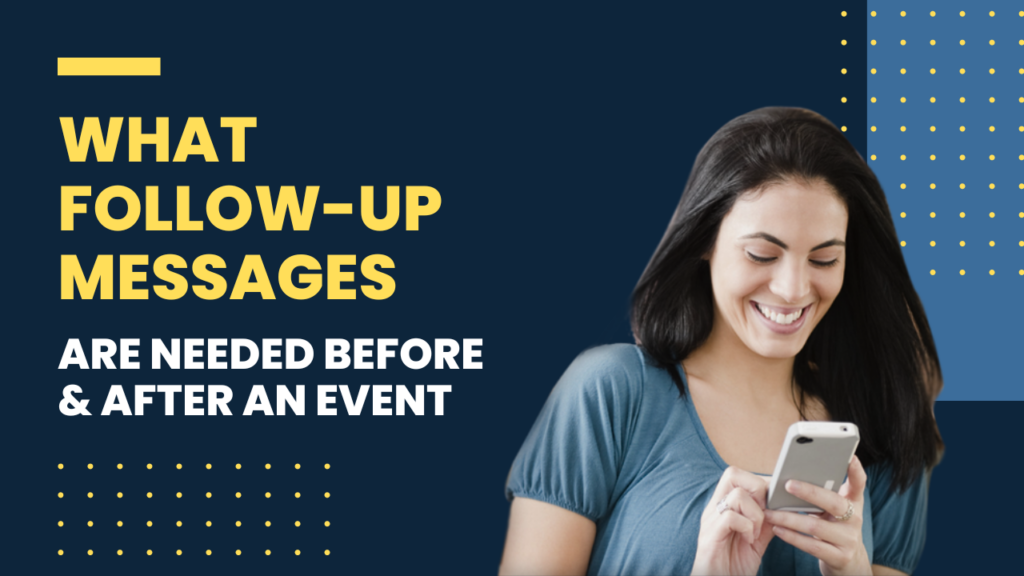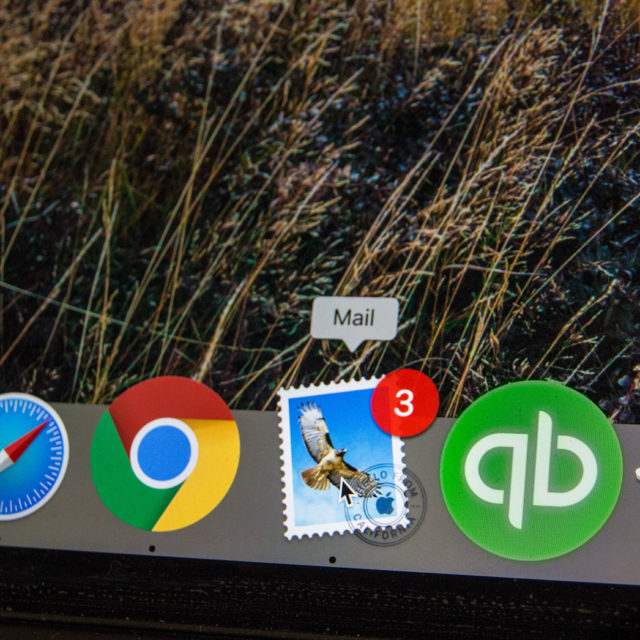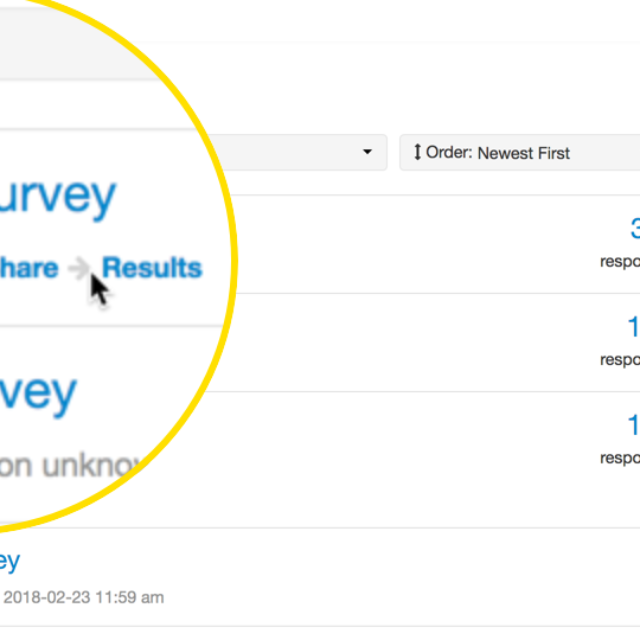Sometimes, event planners organize a great event but don’t get as much attendance as they thought they would because they forgot to send reminders.
Other times, they have many attendees, but most express dissatisfaction because of a lack of communication. These things happen because event planners don’t send follow-up messages before and after their events.
So, you must take communication seriously when planning events.
If you’re new at event planning, don’t worry. This article will provide follow-up messages you can send before and after your event that can increase attendance and satisfaction, so let’s dive right in,
What Follow-Up Messages Are Needed Before and After an Event?
Planning and executing events requires time, effort, and resources; some do it better than others. However, the best ones don’t forget about communication.
Good event planners interact with their attendees before and after their events for multiple reasons, including ensuring audience and attendee satisfaction, improving future events, and more.
Here’s a list of follow-up messages you can send before, during, and after your event.
Follow-Up Messages Before the Event
Here’s a breakdown of the follow-up messages event planners usually send before the event. Below, you will find examples of the messages in the same order.
- Save-the-date message: Message your attendees the event’s date, time, and place. It’s important to notify them beforehand so they can plan accordingly and prevent interruptions.
- Invitation message: Once you know the exact date, time, and location, send your invitations to your target audience. Each invitation should include essential information, such as purpose and special requirements (RSVP, dress code, etc.). Finally, ensure they’re concise, easy to read, engaging, and personal.
- Reminder message: As the event date approaches, send out a reminder to your attendees so they don’t forget about your event. This reminder can also help you build excitement for the event.
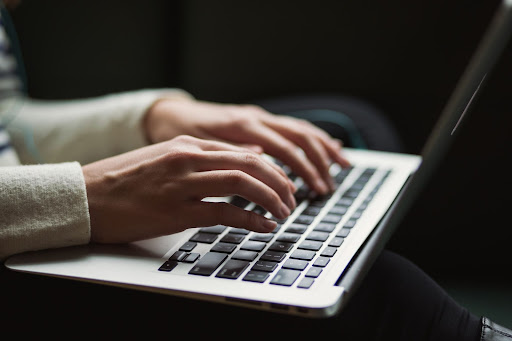
Save-the-Date Message:
Subject: Save the Date – [Event Name]
Dear, [Name],
We’re excited to announce that [Event Name] is coming soon! So, make your calendars for [Date] and join us at [Location] for a memorable experience.
Stay tuned for more details and information.
Best regards, [Your name/organization]
Invitation Message:
Subject: You’re Invited to [Event Name]
We invite you to join us at [Event Name], where you will have the chance to [list benefits/attractions/activities, etc.].
The event will take place on [Date] at [Location], and we would love to have you there.
Best regards, [Your name/organization]
Reminder Message:
Subject: Reminder – [Event Name] is almost here!
Dear [Name],
We hope you’re looking forward to [Event Name] as much as us. As a friendly reminder, the event is on [Date] at [Location], and we can’t wait to see you there.
If you haven’t already, RSVP to confirm your attendance.
See you soon!
Best regards, [Your name/organization]
Follow-Up Messages During the Event
Here’s a description of the follow-up messages event organizers typically send during the event. Below, you will find examples of the messages in the same order.
- Welcome message: You can start the event with a welcoming message to greet your attendees and set the tone. A welcoming message will make everyone feel comfortable and appreciated. You can also use this message to share more information, such as instructions or housekeeping details.
- Informational message: If something doesn’t go according to plan or you have updates to share with your attendees, you can send a short message explaining what’s happening. This will help ensure no one misses important activities, etc.
- Social media message: You can upload photos, videos, and updates from your event on social media. Additionally, you can encourage your attendees to share their experiences on their social media profiles and use your event’s hashtag. This will help build engagement and excitement during and after the event.
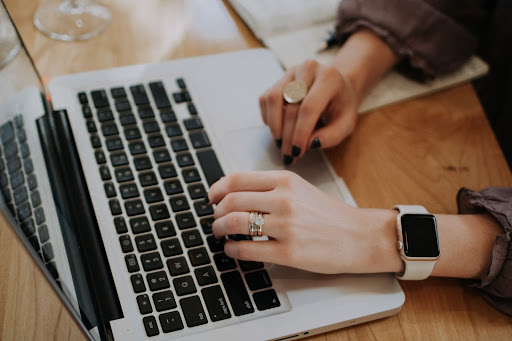
Welcome Message:
Dear [Name],
Welcome to [Event Name]!
We’re thrilled to have you here and hope you enjoy everything we’ve planned for you. Before we start, here are a few housekeeping items to remember [list any important instructions].
If you have any questions or concerns, please don’t hesitate to ask our team members, who are always happy to help.
Thank you, and enjoy the event!
Best regards, [Your name/organization]
Informational Message:
Subject: Update – Change to [Event Name] Schedule
Dear [Name],
We wanted to let you know that there has been a change to the schedule for [Event Name]. [Provide details about the change and its impact]. We apologize for any inconvenience this may cause and appreciate your understanding.
Best regards, [Your name/organization]
Social Media Message:
Subject: Join the Conversation – [Event Name] Hashtag
Dear [Name],
Are you enjoying [Event Name]? Don’t forget to share your experience with us on social media using the hashtag [#EventHashtag].
We’d love to see your photos, videos, and posts and hear your thoughts about the event. Let’s make this a truly memorable experience!
Best regards, [Your name/organization]
Follow-Up Messages After the Event
Here’s a summary of the follow-up messages event planners usually send after the event. Below, you will find examples of the messages in the same order.
- Thank-you message: After every event, you should send a thank-you message to all attendees, partners, speakers, and sponsors who made the event possible. Express your appreciation and gratitude for everyone’s support. Finally, you can say that everyone’s welcome at your future events.
- Survey message: Every good event planner sends a survey after their event to collect feedback from their attendees about their experience. A survey message can help you understand what went well and what needs improvement. However, ensure it’s concise and easy to complete.
- Follow-up message: After the survey, you can send a final message containing your gratitude for their time and support again and tell everyone how you plan to use their feedback to improve future events. This will help show your attendees that you take their feedback, time, and support seriously.

Thank-You Message:
Subject: Thank You for Attending [Event Name]
Dear [Name],
On behalf of [Your name/organization], we sincerely thank you for attending [Event Name]. Your presence and support contributed to making the event a tremendous success.
We hope you found the experience enjoyable and informative and that you will join us for future events.
Thank you once again, and we look forward to seeing you soon!
Best regards, [Your name/organization]
Survey Message:
Subject: Your Feedback Matters – [Event Name] Survey
Dear [Name],
We value your opinion and would appreciate your feedback on [Event Name]. Please take a few minutes to complete our survey, which will help us improve future events and better serve your needs. [Provide a link to the survey]
Thank you for your participation and support!
Best regards, [Your name/organization]
Follow-Up Message:
Subject: Updates & Future Events
We appreciate your participation and value your input in helping us improve our future events.
We carefully reviewed all of the feedback we received, and we’re pleased to let you know that your suggestions will be incorporated into our future event planning.
We’re excited to announce that we have already started planning for our next event, [Event Name 2].
We’ve taken all the feedback from you and other attendees and significantly improved the event program and activities.
We hope that you’ll join us again for [Event Name 2], which will take place on [Date] at [Location]. We’ll send out invitations soon, so keep an eye on your inbox!
Once again, thank you for your feedback and ideas. We couldn’t have done it without you, and we look forward to seeing you again soon.
Best regards,
[Your name/organization]In conclusion, effective communication before and after your events can go a long way for event planners.
Interact with your attendees throughout your events to determine what you’re doing well and what needs improvement to improve your future events.
So, use the tips above and make your events successful.
Final Thoughts
The success of your events depends on your organizing and execution skills. However, it also depends on the communication and follow-up before, during, and after events.
Therefore, ensure everyone feels supported, appreciated, and well-informed before, during, and after your events by sending reminders, informational messages, surveys, and more.
You can turn your event into a more enjoyable experience with the right messages.

